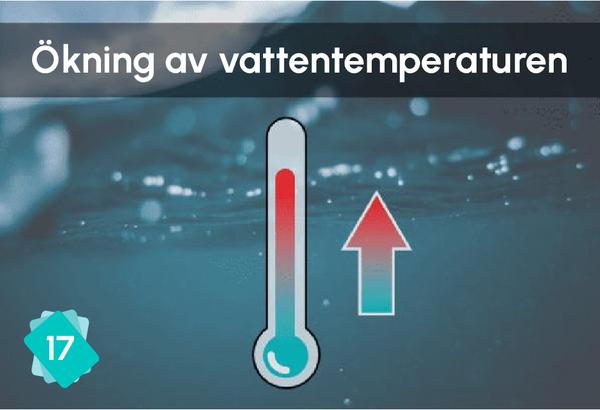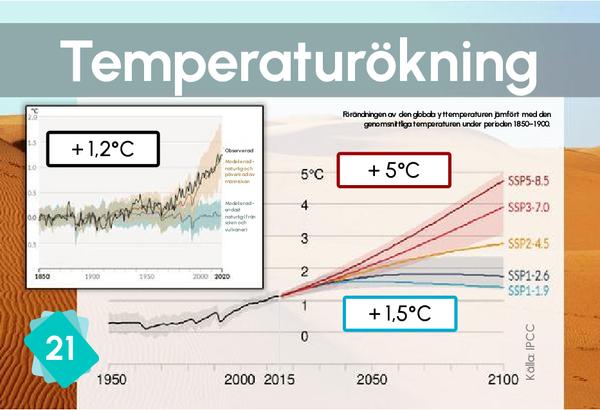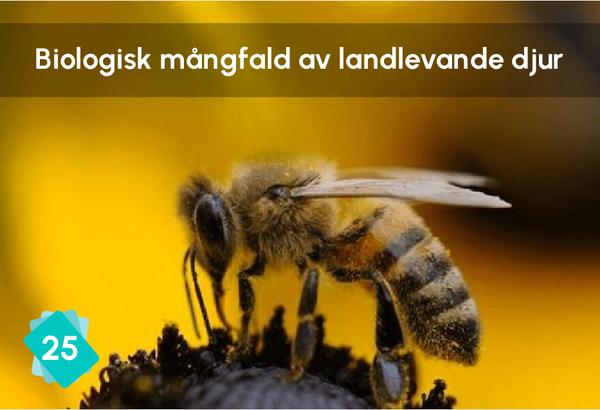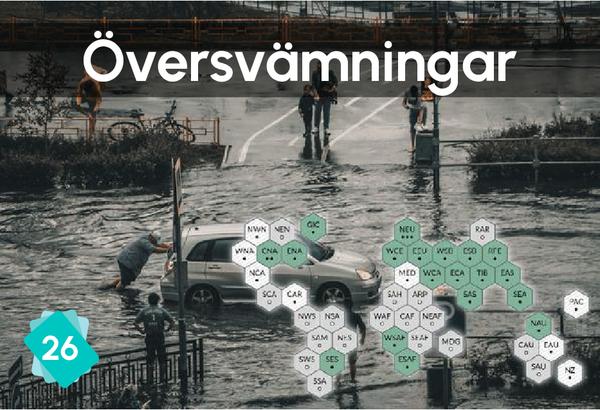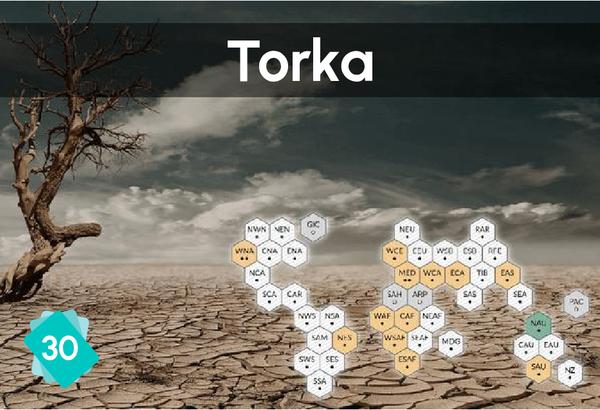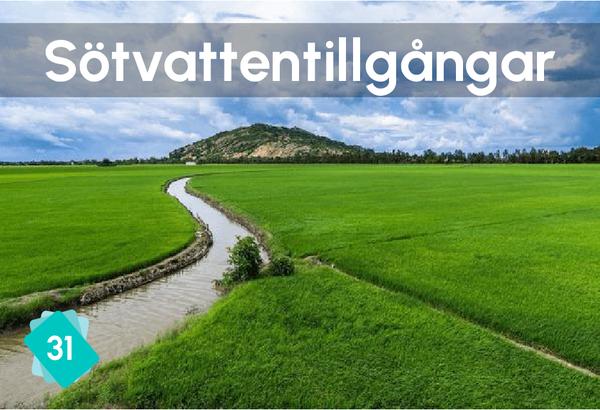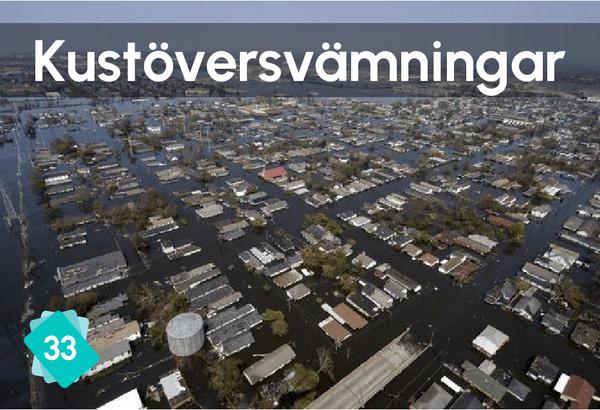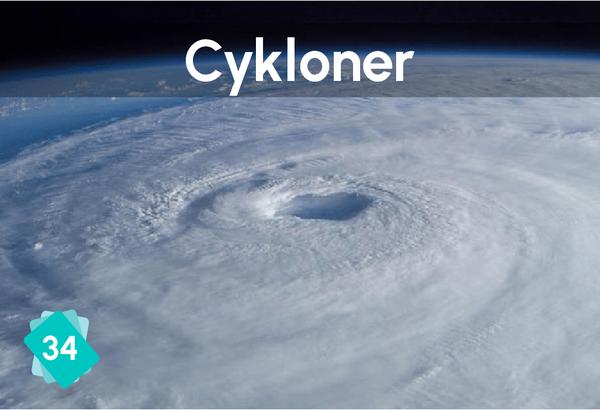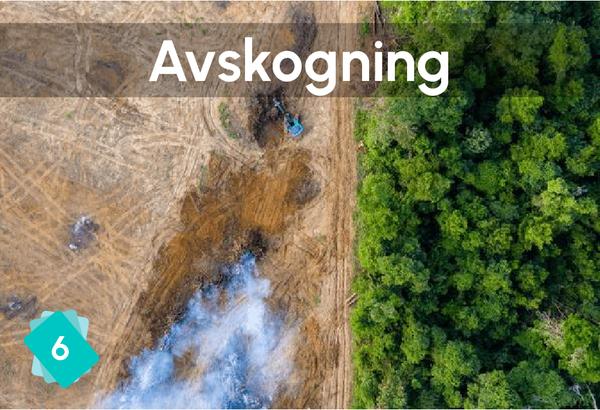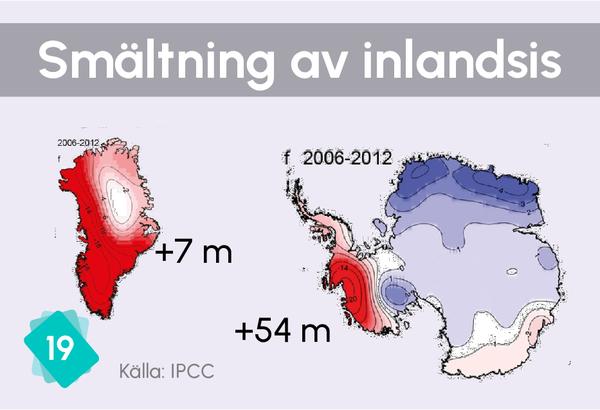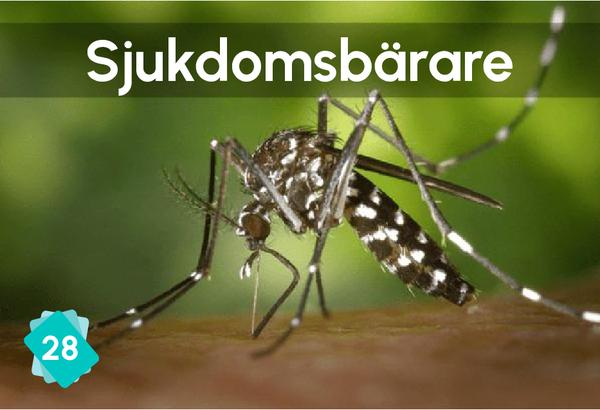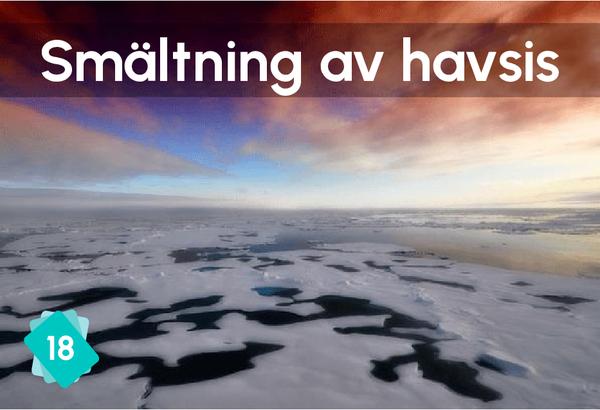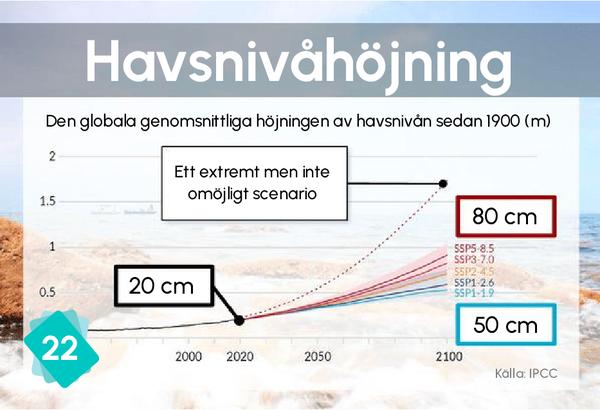20 - Störning av vattnets kretslopp
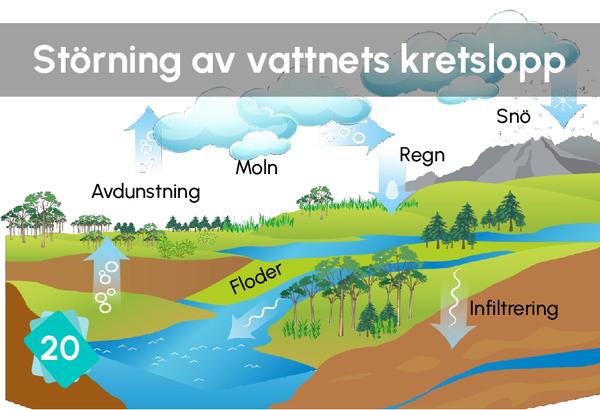
✏️ Den här förklaringen är ännu inte tillgänglig på ditt språk, du kan fylla i detta Google-formulär för att hjälpa oss!
Det här är ett viktigt kort. Det visar varför man tidigare talade om global uppvärmning, men nu allt oftare om klimatförändringar eller till och med klimatstörningar. Temperaturökningen är i sig ett problem, men som vi ser i slutet av fresken så har störningar i vattnets kretslopp mycket större effekter.
2Orsaker
6Konsekvenser
1Annan möjlig orsak
Avskogning minskar evapotranspiration och nederbörd. Den kan därför ha lokala konsekvenser för nederbörden.
KÄLLOR: AR6 WG1 Box TS.6 s54 (s86) // FAO 2022 s17
2Andra möjliga konsekvenser
Det är lite tekniskt, men om man är noggrann, representerar den blå delen av diagrammet på kort 19 för Antarktis en massökning på grund av ökad nederbörd. De röda delarna representerar en massförlust. Totalt sett förlorar Antarktis massa. KÄLLOR: AR6 WG1 TS.2.5 s94 (s77) // AR6 WG2 Figur 4.2: vattencykelschema s577 (s565)
Kortet 'Sjukdomsvektorer' är i allmänhet kopplad till den kortet 'Landlevande biologisk mångfald' eftersom sjukdomsvektorer är en del av den biologiska mångfalden, men den kan också kopplas till samma orsaker som kortet om biologisk mångfald, det vill säga störningar i vattencykeln och temperaturökning.
1Fel orsak
Smältningen av Arktis havsis, men även smältningen av Grönlands glaciärer kan i en avlägsen framtid störa den termohalina cirkulationen (som skapar Golfströmmen). Men observera att kortet 'Vattnets kretslopp' inte alls hänvisar till den termohalina cirkulationen.




